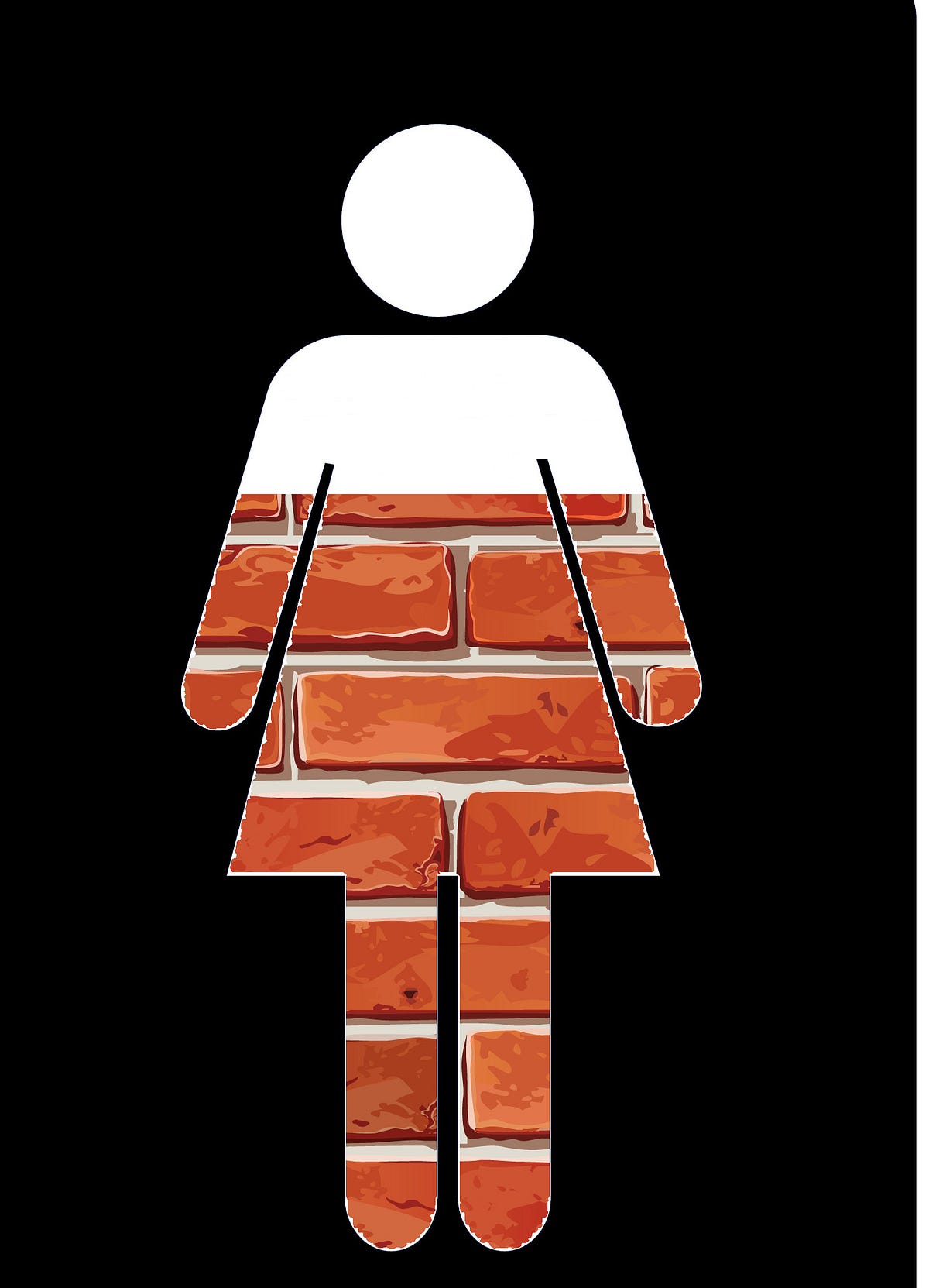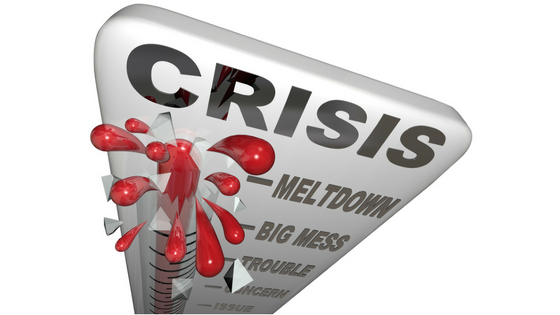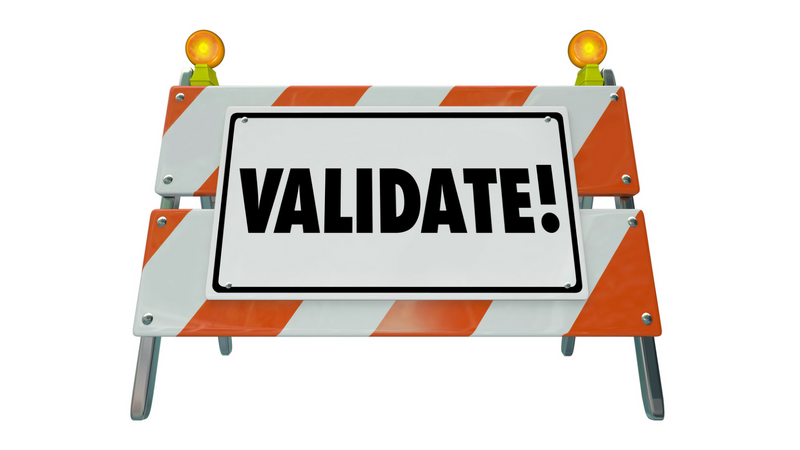Casting Off Shoulds Leads to Better Living
I grew up in a world of “shoulds.”
“You should clean up your room every day.”
“You should set aside prayer time every day.”
“You should save 10% of everything you earn.”
“You should finish everything you start.”
“You should always be polite.”
“You should dream big.”
“You should have concrete goals.”
There’s a lot of wisdom in these shoulds and a lot of pressure, as well. By the time I was 23, I had a distinct image in my head that symbolized the progress I was making on becoming the “best” version of myself. The image was a paper doll outline, and every time I felt I accomplished a should I mortared in a little brick. The bricks started at the feet and made their way up.I lived with this image in my head for years and managed to brick my way up to just about mid-chest level. There, the bricks stopped. Every so often, I would try to add a new brick only to discover that it somehow disappeared the next time I wanted to add a new brick. Somehow, someway, the brick wall stalled at that point. I felt frustrated and defeated. I could never be good enough.
People are always more perfect when viewed from a distance.
I finally stopped working on filling in the doll, understanding that I was inherently broken and unable to be the person I imagined becoming: Someone who had it all together. A person with a “good” career at a “good” company, successfully living on their own, saving money while planning for retirement, always perfectly coiffed and styled with perfect makeup, who had the right answers in the right moment and phrased them just right.
In other words, just like other women I admired and how I imagined they were. People are always more perfect when viewed from a distance.
It was an impossible standard to live up to.
Even once I was able to recognize that important point, I still couldn’t let go of the paper doll image in my head and what it represented. My failure. My incompetence.
Those shoulds laid heavily on my shoulders, weighing me down with my disappointments and inabilities. I didn’t see them for what they truly were: someone else’s expectations placed upon me without my permission.
Shoulds are boundary-crossers. When someone shoulds on us, they place an expectation upon us that may not be realistic for where — and who — we are at that moment.
The real problem is when we adopt these external shoulds for ourselves. When we are living paycheck-to-paycheck and struggling to put food on the table and gas in the car, saving ten percent is not a realistic expectation. And yet, too often, we feel guilty for not doing what we know we should.
When we choose, we cast off guilt.
I first learned this point when I attended a sales training offered by a company I worked for. In walked Bob Gregoire, a Sandler Sales trainer and consultant, and a few things he shared across those days really hit home with me.
He gave us permission to cast off the shoulds, suggesting we banish the word from our vocabulary. Shoulds hold us back and constrain us. Instead, he guided, opt for a choice. Choosing is empowering. “I choose to save ten percent of my income” resonates very differently in my body than “I should save ten percent of my income.”
When we choose, we cast off guilt. When we hit an obstacle with our choosing (say, an unexpected expense), we can make a different choice. I can choose to put new tires on my car and forego saving this month, or I can choose to dip into my savings, or I can choose to take public transportation until I have enough cash to pay for the tires and still save. In replacing shoulds with choices, we become more flexible in our decision-making and free ourselves from guilt.
I cast off everything I knew I should do and I should be and became a blank slate of wants.
Choosing means understanding our desires and our dreams. I desire to get off the financial roller coaster, and to do so, I choose to save every month. I desire to have a stable and healthy romantic relationship, so I choose to attend therapy and change some of my relational behaviors. I dream of owning my own business and I choose to be underemployed so I have the time and the emotional energy to make that dream come true.
I dream. I desire. I choose.
(I don’t know about you and your experience in reading these last few paragraphs, but I went from being stressed out over all those shoulds to relaxed over the power of choice.)
After the first day of training, I went home and did something I’d never done before. I took out a few sheets of paper and went about the process of designing my life.
If I lived my life in my way, what would it look like? I spent four hours plugging away at it, tweaking, modifying, exploring, defining. For the first time in my life, I cast off everything I knew I “should” do and I “should” be and became a blank slate of wants.
The paper doll vanished.
As I started living out this new life, I became aware of how deeply the word “should” permeated my daily life. I started discovering little shoulds hiding in odd places of my life. One of the most interesting was one around my eating habits. I discovered that I “should” finish all the food on my plate, even if it tastes disgusting or I’m full. Each newly-uncovered “should” was examined and explored, then cast off or chosen. With each choice, a new layer of guilt was cast off.
I dream. I desire. I choose.
There was another benefit for me, too. I had a newly-found ability to erect and maintain relational boundaries. When a family member told me I “should” do something, I knew right away if it fit within the framework of the new life I was building for myself.
I had permission to say, “Thanks for the advice; I’ll think about it,” and then immediately cast it off. The obligation to take on that should”melted away. I stopped letting people should all over me.
My life today is not the life I designed for myself eight years ago and that’s wonderful. Circumstances changed; my desires changed. And each time, I was able to look at the situation and make a choice: stick to the original plan or make a change. I never expected to take a sabbatical from my career, and here I am. I never expected to move to a more rural area, and I love it. I didn’t foresee a diagnosis of bipolar disorder or to become a Christian, yet each step was a choice and not a should.
The process is not perfect and every so often I do an exercise to find and excise the shoulds living in my life. Each time, I find it freeing and energizing. It refocuses me and helps me make sure I’m living out my priorities. Learning to cast off the shoulds is one of the top 10 gifts I’ve ever received.
What’s an expectation someone has placed on you? What would your life look like if you lived as you desired?
Looking for daily inspiration and community? Join our warm and supportive Facebook group!










